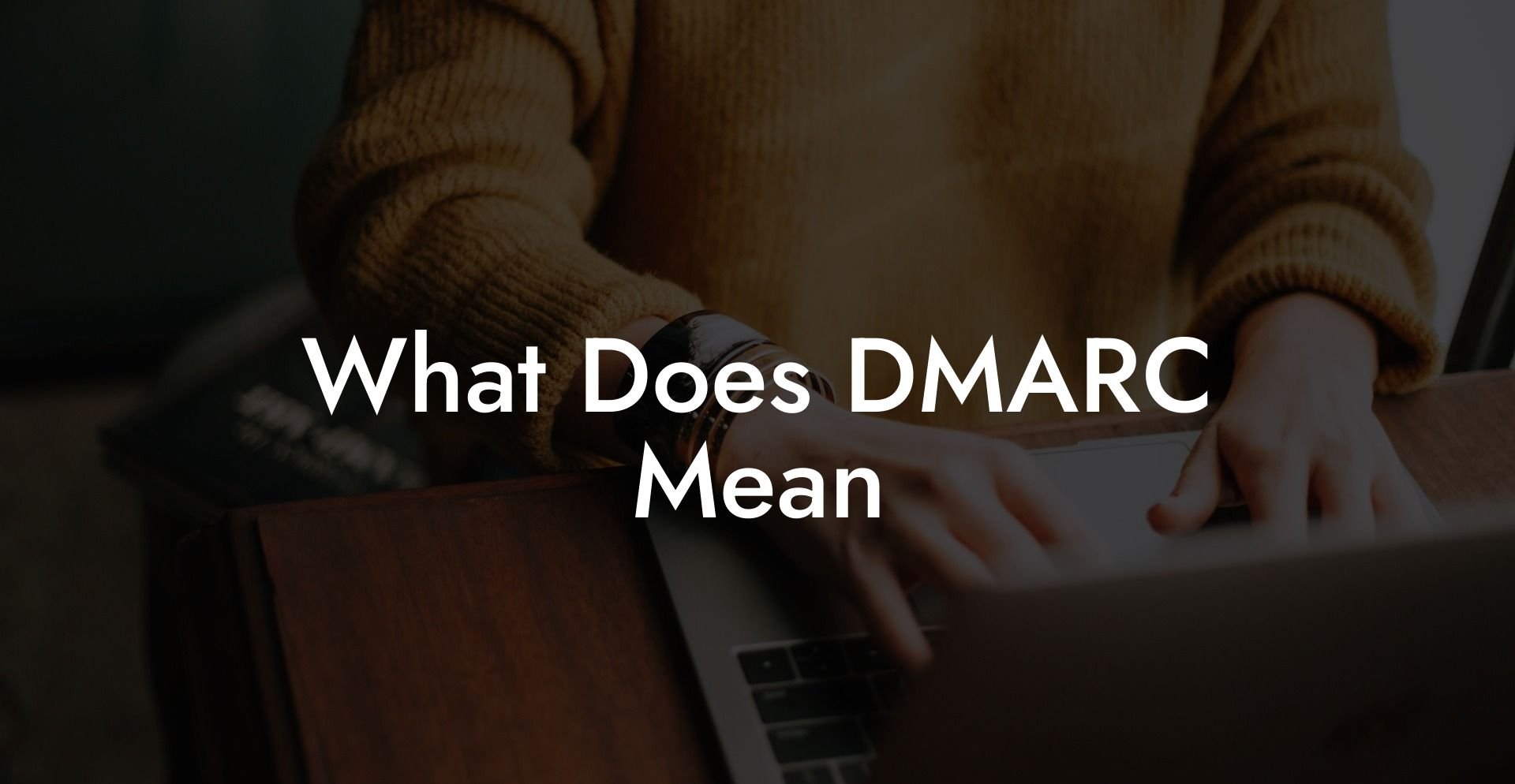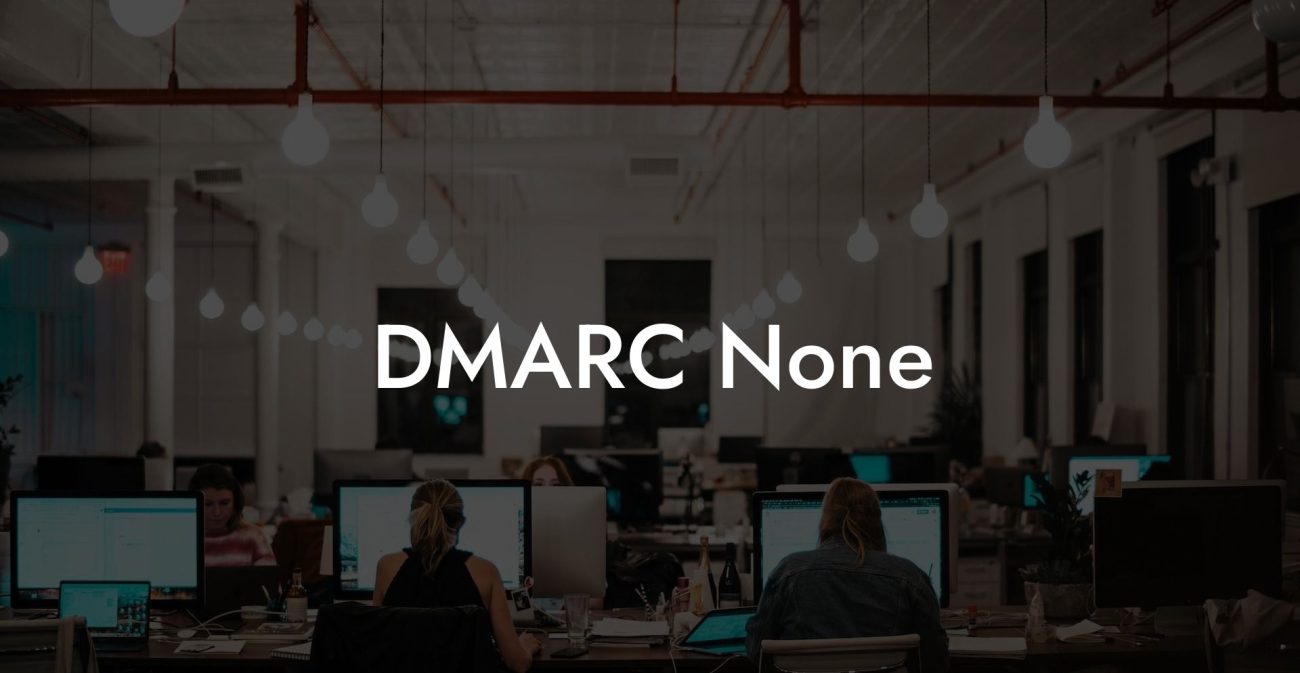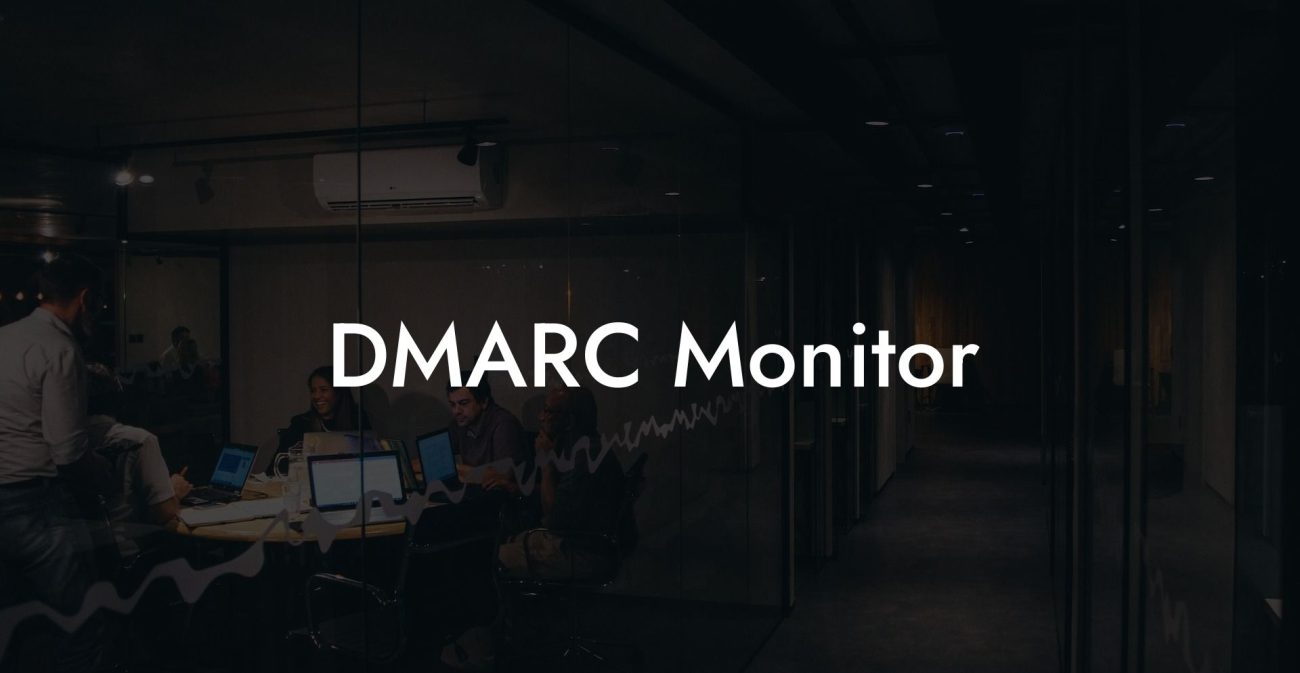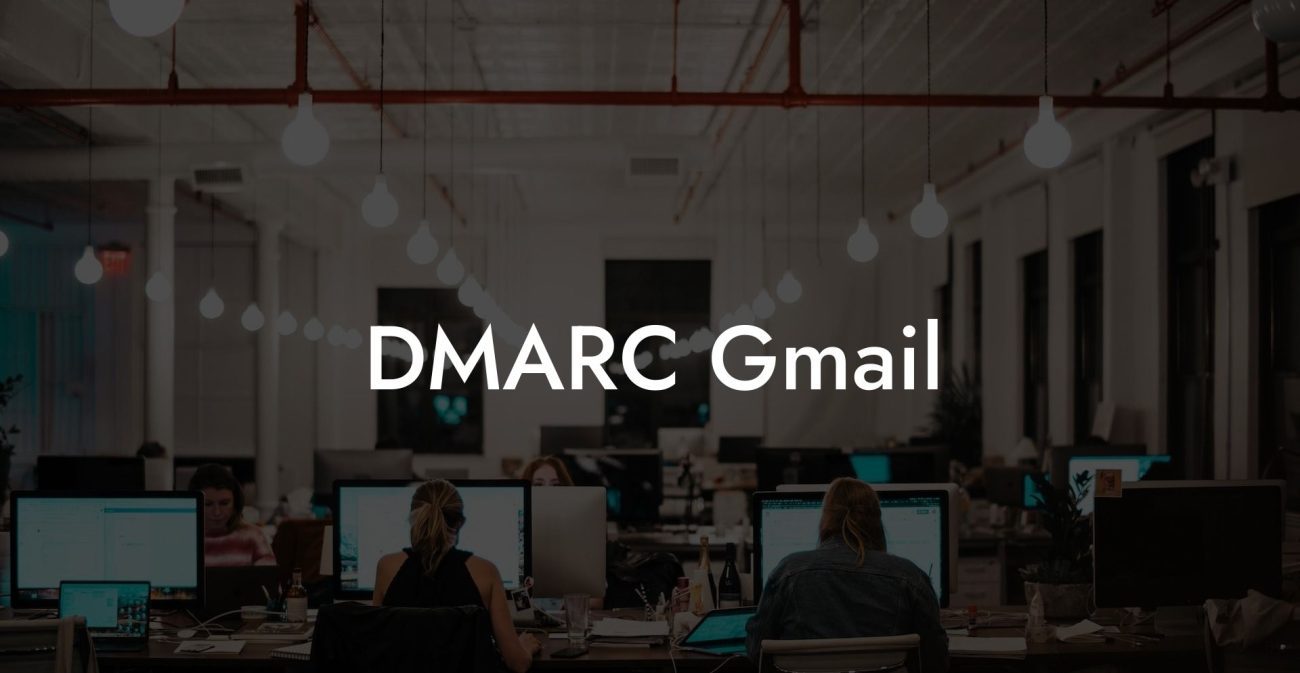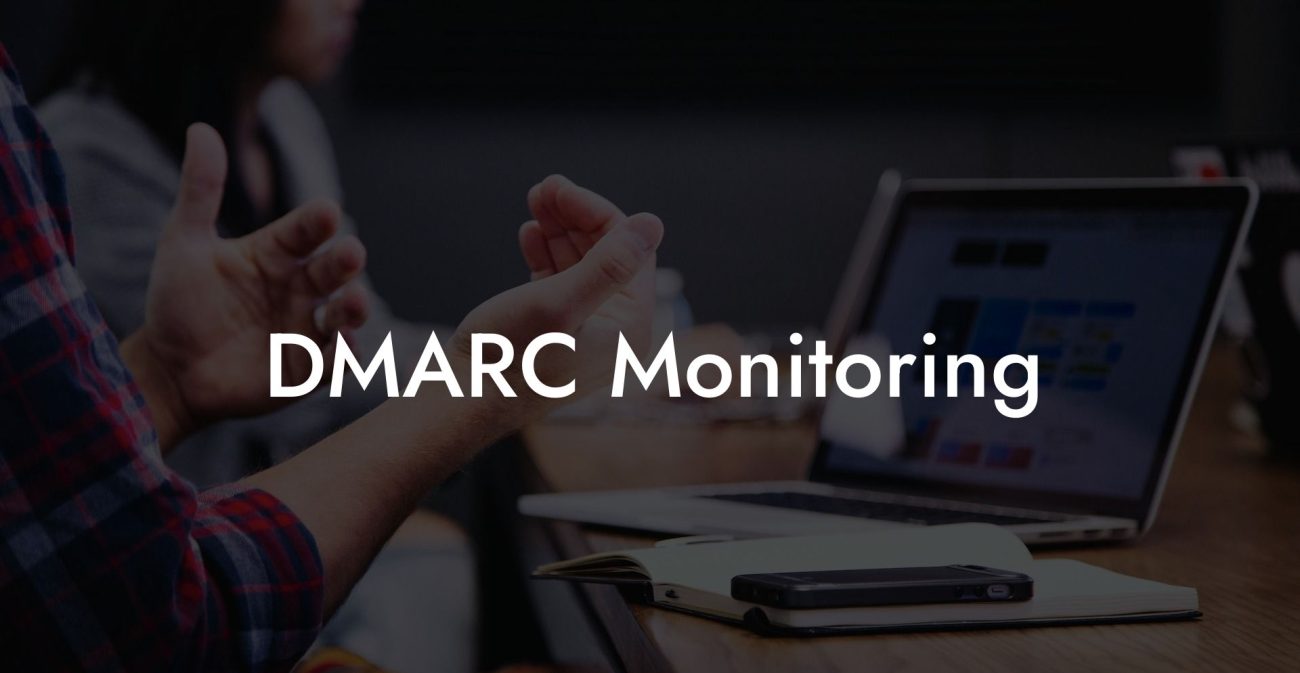In the digital age, email security has become more important than ever. With the rise of sophisticated phishing attacks and email scams, protecting your business and personal email communications is a top priority. One major tool that helps combat these threats is DMARC. In this article, we will dive into the world of DMARC, explaining what it is, why it's important, and how it works. By understanding the benefits of implementing DMARC, you'll be better equipped to safeguard your emails and enhance your cybersecurity.
What Does DMARC Mean Table of Contents
What is DMARC?
DMARC, or Domain-based Message Authentication, Reporting, and Conformance, is an email security protocol that acts as an extra layer of protection against email spoofing and phishing attacks. It works alongside other email authentication protocols like SPF (Sender Policy Framework) and DKIM (DomainKeys Identified Mail) to ensure that only legitimate emails are delivered to recipients' inboxes.
How does DMARC work?
Protect Your Data Today With a Secure Password Manager. Our Top Password Managers:
DMARC operates by checking the authenticity of an email by verifying its sender. It does this by analyzing the domain of the email sender and comparing it against both the SPF and DKIM protocols. If the email passes these checks, the DMARC policy allows it to be delivered. If the email fails either the SPF or DKIM check, the DMARC policy instructs the receiving email server on how to handle the message - either by rejecting it, quarantining it, or delivering it with a warning.
Why is DMARC important?
- Protects brand reputation: Implementing DMARC prevents attackers from using your domain to send malicious emails which could tarnish your brand's reputation.
- Enhances email security: By utilizing DMARC, you add an extra layer of protection against email-based threats like phishing, spoofing, and business email compromise (BEC).
- Improves email deliverability: Email providers are more likely to classify your emails as safe and deliver them to the recipient's inbox if you use DMARC, which can boost your email deliverability rates.
- Provides valuable insight: DMARC generates reports about your email traffic, which can give you valuable insights into any potential threats and help you fine-tune your email security strategy.
How to implement DMARC?
Implementing DMARC involves setting up policies and configuring your DNS. Here's a step-by-step guide to help you get started:
- Implement SPF and DKIM: Before you implement DMARC, you should have your SPF and DKIM protocols correctly set up to authenticate your emails.
- Create a DMARC policy: Craft a policy that specifies the actions to be taken when an email fails authentication checks, and the email addresses to receive the reports.
- Configure your DNS: Create a DMARC TXT record in your domain's DNS to publish the policy and make it available to email servers.
- Monitor and analyze reports: Regularly review DMARC reports to gain insights into your email traffic and identify areas for improvement.
- Refine your DMARC policy: Based on the insights from the reports, make necessary changes to your DMARC policy to enhance email security and deliverability.
What Does DMARC Mean Example:
Suppose you own a small online retail business. One day, you receive several complaints from customers that they've been receiving suspicious emails from your company, attempting to coerce them into revealing sensitive information. You quickly realize that your domain is being used to send phishing emails, which not only puts your customers at risk but also damages your brand's reputation.
To prevent this kind of attack, you decide to implement DMARC. You follow the steps mentioned above and create a DMARC policy that rejects emails that fail the authentication checks. As a result, malicious emails sent using your domain are no longer delivered to your customers' inboxes. Furthermore, DMARC helps improve your legitimate email deliverability by classifying them as safe, ensuring they reach your customers without any issues.
In conclusion, DMARC is a critical email security protocol that can help protect your domain from being used in phishing attacks, improve email deliverability, and strengthen your overall cybersecurity. By understanding what DMARC is and how it works, you can take proactive steps to safeguard your email communications and your brand's reputation. Don't forget to share this valuable information with others to promote greater cybersecurity awareness. Also, explore more guides on Voice Phishing to stay informed on the latest trends and best practices in the ever-evolving world of cybersecurity.
Protect Your Data Today With a Secure Password Manager. Our Top Password Managers:

